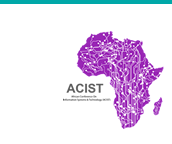Location
Harare, Zimbabwe and Virtual
Start Date
15-9-2023 12:00 PM
End Date
15-9-2023 12:30 PM
Description
African countries have persistently ranked poorly in the United Nations E-Government Development index (EGDI). This study therefore sought to make sense of the nature and form of digital transformation (DX) in African governments. It used a bibliometric analysis and a critical realist lens to explore some of the underlying structures and generative mechanisms that influence DX. The key findings from 606 scholarly publications over the three decades of DX research reveals marked sharp contrasts, with South Africa dominating the research on DX, an underrepresentation of DX research from most African nations, and some influence from non-African nations, particularly the United States of America (USA), the United Kingdom (UK) and the Netherlands. These realities reflect deeper underlying structures including economic power dynamics, infrastructural disparities, and potential neocolonial influences. Challenges such as digital literacy, data sovereignty concerns, and the absence of Artificial Intelligence (AI) in the discourse highlight tangible obstacles. Despite these complexities, DX's primary objective, improving lives and delivering efficient government services, remains integral to its potential success. The study underscores the need for a nuanced understanding of DX's multi-faceted nature in Africa, advocating for future research to explore economic power dynamics, capture underrepresented experiences, address digital literacy, and integrate AI into the DX discourse.
DX in Africa Paper - Appendix A
Included in
Computer Sciences Commons, Public Affairs, Public Policy and Public Administration Commons
Digital Transformation in Government: A Bibliometric Scoping of African Aspirations and the Realities
Harare, Zimbabwe and Virtual
African countries have persistently ranked poorly in the United Nations E-Government Development index (EGDI). This study therefore sought to make sense of the nature and form of digital transformation (DX) in African governments. It used a bibliometric analysis and a critical realist lens to explore some of the underlying structures and generative mechanisms that influence DX. The key findings from 606 scholarly publications over the three decades of DX research reveals marked sharp contrasts, with South Africa dominating the research on DX, an underrepresentation of DX research from most African nations, and some influence from non-African nations, particularly the United States of America (USA), the United Kingdom (UK) and the Netherlands. These realities reflect deeper underlying structures including economic power dynamics, infrastructural disparities, and potential neocolonial influences. Challenges such as digital literacy, data sovereignty concerns, and the absence of Artificial Intelligence (AI) in the discourse highlight tangible obstacles. Despite these complexities, DX's primary objective, improving lives and delivering efficient government services, remains integral to its potential success. The study underscores the need for a nuanced understanding of DX's multi-faceted nature in Africa, advocating for future research to explore economic power dynamics, capture underrepresented experiences, address digital literacy, and integrate AI into the DX discourse.



